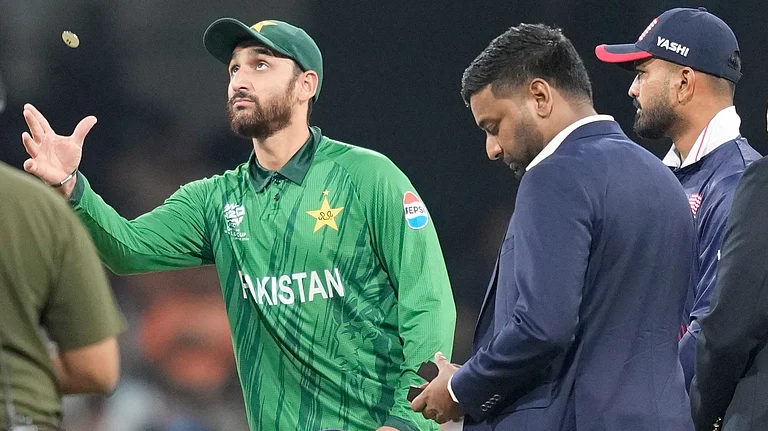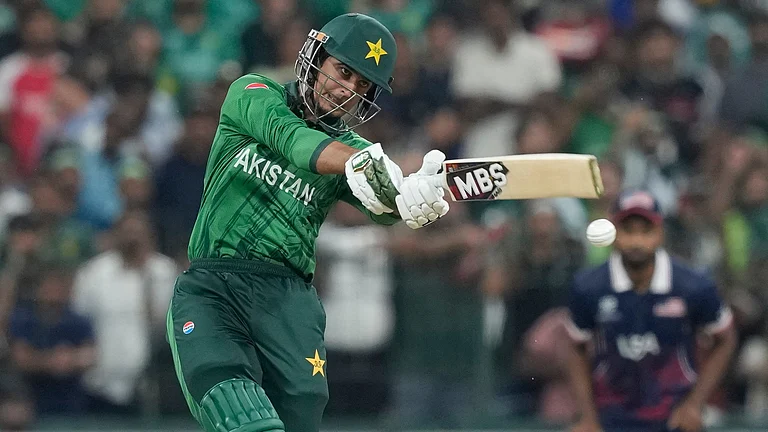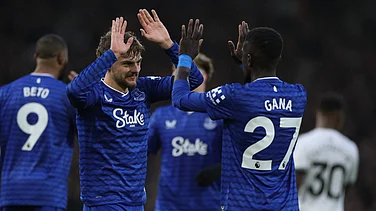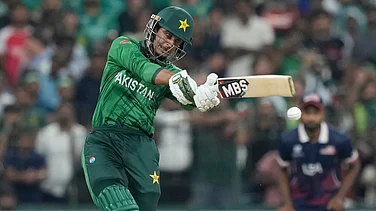If the Olympic flame is the symbol of the sporting movement that magically erects a Babel-like global village in some part of the world every four years, the relay of the Olympic torch across Brazil has truly captured the mood in this country, the first South American nation to host the biggest sporting spectacle on earth. During its three-month-long course across Brazil—nearly thrice the size of India—the Olympic flame has gone out many times. In many cities, unhappy Brazilians have chucked water at it, flung slogans at the runners who have stumbled and fallen and breached the ring of security around the Olympic symbol. Some even managed to snatch it away for a while.
On Monday, just four days before the glittering opening ceremony at the Maracana, people of Baixada Fluminense, a crammed ghetto of the underprivileged in the north of Rio, organised a mock Olympic torch run as a protest. Carrying a ‘Torch of Shame’, residents ran through the lanes of the favela, where over 800 have been murdered in just the first five months of 2016.
Brazil is hosting two games at the same time. One will happen in the multi-billion-dollar arenas. Others will take place on the country’s streets. Fresh athletic prowess in custom-built stadia will mint new heroes—a Spitz or a Phelps who would wax golden and hog global headlines. But thousands of Brazilians will go out to shout only for meaningful democracy, not the new Olympic records.
Brazil is two countries—one ready to bask in Olympic glory; the other fighting for its soul. “We have literally been locked up in our community by the police. They have been picking people at will and we are not allowed to go close to the stadiums. Protesters may be booked under the new anti-terrorism law,” says Ricardo Nunes, 21, a favela resident who has been taking part in protests against the ‘coup’ that led to former president Dilma Rousseff’s suspension from office in May. “We can’t allow Brazil being taken back to its dark past.”
Charles de Gaulle is rumoured to have once said that “Brazil is not a serious country”. He actually said that “Brazil is not a country”, but his misquote was used throughout the 20th century to explain—and deride—Brazil, which, in the wider imagination, only produced magical footballers like Pele and half-wit beauties like Carmen Miranda.
All that changed by the turn of the century, as Brazil began to emerge as an economic powerhouse, with a stable democracy and strong social programmes under president Lula da Silva. In 2009, when Brazil won the rights to hold the 2016 games, it seemed it was taking a giant leap into a select club. Things appeared even better when, in 2010, Brazil elected Lula’s protege, Rousseff, its first woman president. It was a turning point—a clean break with the past—stained by military coups, horrific inequality and violations of human rights.
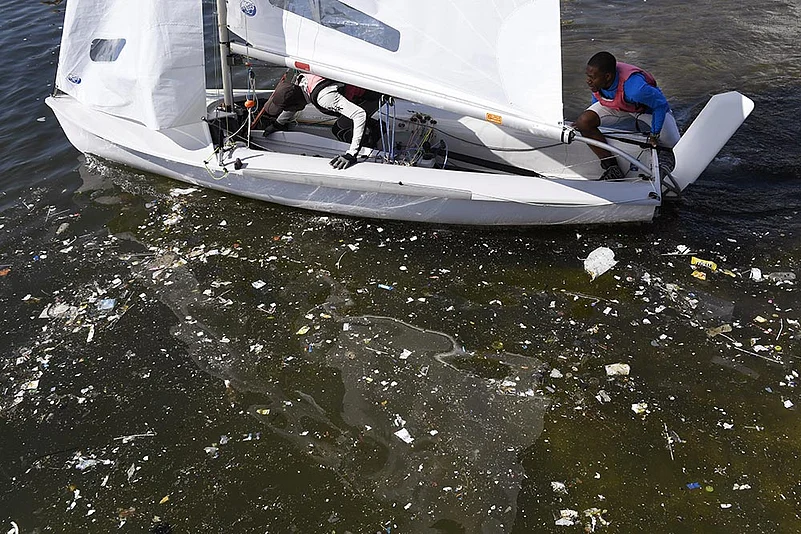
Waste litters the waters of Rio’s Guanabara Bay, to host sailing events
Just five years later, the Brazilian dream has turned sour. Rousseff is under suspension and facing impeachment. Lula, Brazil’s most popular leader ever, is also facing trial in a corruption case. And the most corrupt political party, with leaders embroiled in almost all scandals, now runs the government. “Just two years ago, we elected Rousseff for a second term in a free and fair election. She has been removed from office by those politicians who want to save their own skin. The Brazilian people have been told that their vote doesn’t matter anymore. This was a parliamentary coup against the only honest leader...” says Denise Abreu, an academic from Belo Horizonte.
Now, Brazil is being run by Michel Temer, the interim president known as the ‘butler of horror movies’ among his friends and enemies, partly because of his looks and partly for his backroom machinations. Temer is seen by most Brazilians as the silent plotter of the ‘coup’ that claimed Rousseff. Temer, whose popularity is as low as 3 per cent, is seen by many as trying to use the Olympics to consolidate his position so that he could stay till the end of Rousseff’s mandate—till 2018. “They rushed through the impeachment vote so that they could be in charge during the Olympics,” says a Brazilian diplomat in Brasilia. “The Olympics is a good opportunity for a corrupt set of leaders to get the legitimacy they can never get through the ballot.”
From 1964 to 1985, when Brazil was run by military dictators, the generals took to the country’s football team. Some of them even appointed and dismissed national coaches. And when they won the World Cup in 1970, the army made a huge spectacle of it, turning the football heroes into mythical figures. “In a football mad country like ours, sports is an important instrument of manipulation,” says the diplomat.
But what is at stake here is not just Olympic legacy. The biggest South American country’s future as a democracy is at risk, for under Temer it has taken a turn towards its dangerous past. During 14 years under Lula and Rousseff, Brazil underwent some fundamental changes. Thanks to its social programmes, the country reduced poverty by an astounding 76 per cent—over 45 million moved into the middle class in just 10 years. By using the economic boom, left-leaning governments implemented policies that have given the poor (majority of whom are blacks or of mixed-race) a chance to join the Brazilian dream.
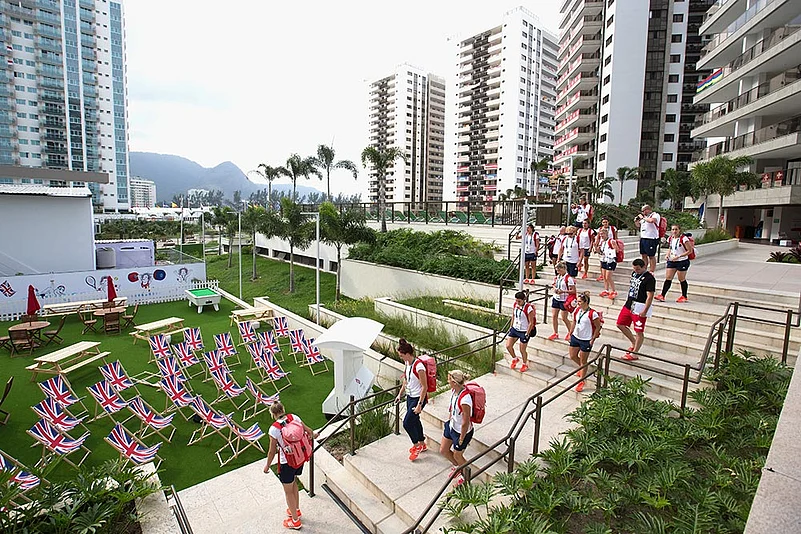
Members of Britain’s rugby team arrive at the Games village in Rio
As they lifted people out of poverty and implemented quotas in universities for black students, Lula’s Workers Party upset a 500-year-old social order. With maids disappearing from the job market, the cossetted middle class got a chore-laden jolt. With minimum wages set higher and workers rights guaranteed, the business class and financial press started to complain about labour laws and how difficult it was to do business in Brazil. “The rich have reacted against the new system, so different from when workers lived like slaves and did all the manual work, while they had all the pleasures in life,” says Abreu, explaining the social tensions that are pulling the country apart.
On assuming presidency on May 12, Temer lost no time in showing that he was there to dismantle the progressive policies of the past 14 years. He named a cabinet of 22 persons—all white men in suits. In a country where 52 per cent of the population are women and 53 per cent are of mixed race, it signalled that the old elite was again at the helm. In his first 60 days in office as only an interim head of state, Temer has announced policies to weaken labour regulations, reduce minimum wages, decrease salaries, and cut social programmes for access to higher education and reduction of poverty. “It is an all-out war on the working people. In the name of boosting economic growth, all the gains made by the poor are being rolled back,” says Nunes, who is busy mobilising people in his community to protest during the Games. “People are angry, as they are being pushed around as the world elite come here to party. They are going to protest at this injustice.” Brazil has splurged an astonishing $12 billion at the Games, making it the most expensive ever. Most of this money has gone into making state-of-the-art facilities or further sprucing up of posh neighbourhoods. On the other hand, during the preparation, more than 75,000 favela residents have been thrown out of their homes. In the name of making the city crime-free, around 2,500 people have been killed by the police since Rio won the right to host the Games. Years of injustice, coupled with the right-wing policies of the new government, might bring the country to a boil.
But even as social movements and activists threaten to carry out protests, Rio will put a good show during the games. The city, which organises the biggest gathering of people, the Carnival, every year, knows well how to throw a big party. It has pulled off at least half-a-dozen mega events over the past decade, starting with the Pan American Games (2007), the Rio+20 Conference (2012), the Confederations Cup (2013) and the World Cup (2014). The present show will be an exercise in eclat.
The real problem will start after the grand show, when legions of disappointed Brazilians, the more numerous in a country that is bitterly divided, will try and get back what is rightfully theirs.
By Shobhan Saxena in Rio de Janeiro







